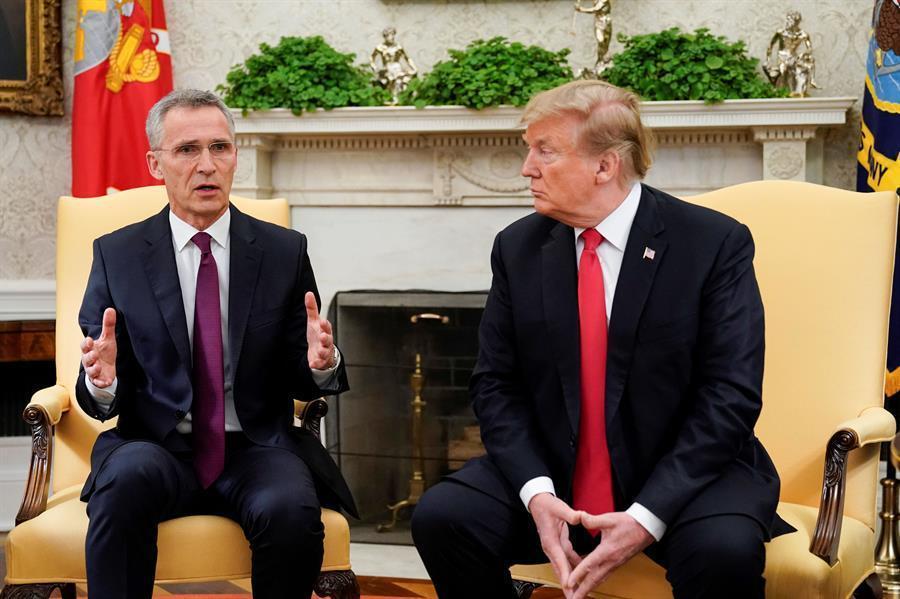Trump says NATO countries' burden-sharing improving
WASHINGTON

U.S. President Donald Trump said on April 2 his pressure on NATO nations to pay more for their defense is leading to tens of billions of dollars more in contributions, but the allies may need to boost their budgets even more.
Trump used a well-worn script about burden-sharing with NATO Secretary General Jens Stoltenberg in talks at the White House. The meeting came a day before NATO foreign ministers sit down in Washington for what is expected to be a session dominated by concerns about Russia.
Trump, who has ruffled feathers among European allies by repeatedly saying that NATO nations needed to pay more and ease the burden on the United States, said his tactics have paid off.
"Since I came to office it's a rocket ship up. We've picked up over $140 billion in additional money, and we look like we're going to have at least another $100 billion in spending by the nations...by 2020," he said.
The U.S. president said he would like to see NATO members pay more than 2 percent of their gross domestic product for defense. Trump told NATO leaders last year to increase defense spending to 4 percent of GDP. He said the United States pays 4.3 percent of its GDP to NATO.
Trump singled out Germany for not doing enough while praising German Chancellor Angela Merkel.
"Germany honestly is not paying their fair share," he said. "They're not paying what they should be paying. They're paying close to 1 percent."
The White House, in a statement, said that Trump met with Stoltenberg to mark NATO's 70th anniversary and reaffirm U.S. support for the alliance. The White House said the two leaders "reviewed NATO's unprecedented progress to increase burden-sharing" and also discussed "ongoing efforts to fight terrorism (and) check Russian aggression."
The NATO foreign ministers' first session tomorrow will focus on Russia. The ministers are expected to endorse a package of measures to improve NATO's defenses in the Black Sea.
Other topics will be NATO's mission in Afghanistan and Turkey's announced decision to buy a Russian surface-to-air missile system. Turkey is a NATO ally, but the Russian system is considered a threat to U.S. F-35 aircraft.
















